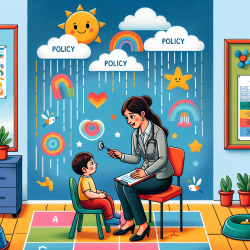Introduction: The Silent Crisis of Maternal Depression
Maternal depression is a well-documented risk factor for child and adolescent depression. Research indicates that children of depressed mothers are significantly more likely to develop depression themselves. A recent review article, Pathways to Prevention for Children of Depressed Mothers: A Review of the Literature and Recommendations for Practice, emphasizes the urgent need for prevention-focused approaches to mitigate this risk. The study suggests a paradigm shift from individual treatment to a family-centered prevention model.
The Case for Prevention
The review highlights that traditional models focusing on treating individuals after symptoms appear are insufficient. Instead, a prevention approach that engages the entire family is recommended. This involves universal, selective, and indicated interventions, tailored to different stages of family life and service settings. The goal is to provide resources proactively, thereby supporting the healthy development of children at risk.
Key Findings: Family-Centered Interventions
The review underscores the importance of family-based interventions, which focus on improving mother-child interactions. These interventions are crucial because poor mother-child interactions are a significant transmission pathway for depression. Family-based services aim to enhance positive reinforcement and attachment, which are often compromised in families affected by maternal depression.
Practical Recommendations for Practitioners
Practitioners are encouraged to integrate prevention strategies into their standard practice. This includes:
- Screening for maternal depression in prenatal and postpartum care settings.
- Offering family-based interventions in primary care and mental health settings.
- Collaborating across different service settings to provide comprehensive care.
For instance, adapting Parent-Child Interaction Therapy (PCIT) for families with depressed mothers has shown promise. This therapy focuses on enhancing the parent-child relationship through behavioral and play techniques.
Encouraging Further Research
While existing interventions show promise, the review calls for further research to test these strategies in diverse settings and populations. Practitioners are urged to contribute to this body of research by documenting outcomes and sharing insights.
Conclusion: A Call to Action
The review makes it clear that the stakes are high. The risk of depression in children of depressed mothers is too significant to ignore. By embracing a prevention-focused approach, practitioners can help break the cycle of depression and improve outcomes for future generations.
To read the original research paper, please follow this link: Pathways to Prevention for Children of Depressed Mothers: A Review of the Literature and Recommendations for Practice.










